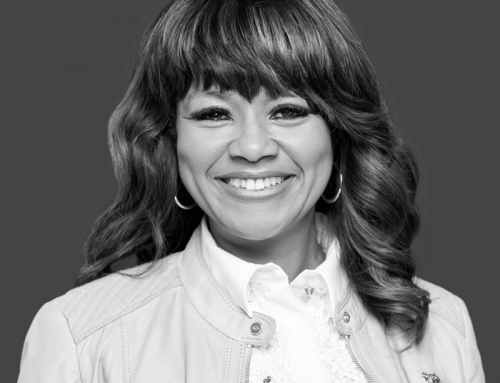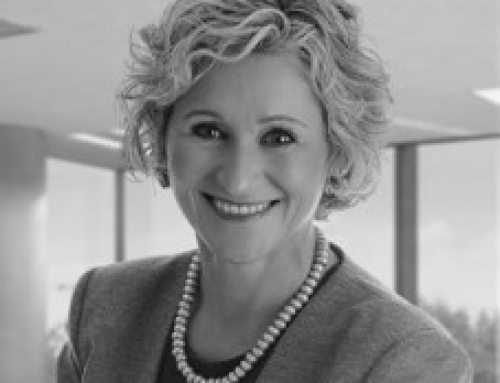
Bonnie Chwartacki is an experienced Corporate Board Director with a wide spectrum of boardroom knowledge in corporate, public sector and not-for-profit organizations. She serves on the board of Cambrian Credit Union, Women’s Enterprise Center of Manitoba, and Youth Employment Services of Manitoba (YES Manitoba). Bonnie recently retired from her role as President of People Corporation, a publicly traded company and leading national provider of human resource solutions. Previously, she held senior roles in the financial services sector.
How did your career arc in financial services and then as the President of a publicly traded company lead you towards a board path?
I had been approached by various boards throughout my business career. However, my career always had a very large business travel component. With the combination of my career commitment, along with my family and personal obligations, I was very conscious of balancing my work and homelife priorities. Board work was not an area I could give much time and focus. I took a fulltime hiatus from my board work when I was President of People Corporation. Upon my semiretirement, my goal was to once again get involved with boards. It was a very conscious decision. I did a lot of homework and a lot of reflection about the boards that I wanted to be on.
Describe how your reflection process helped you decide your board focus?
First, I looked at my core competencies: what I could offer a board and secondly, where I had an interest. I wanted to contribute, but I also wanted to enjoy the experience. After 30 years in financial services, that sector was a no brainer. The second area that I wanted to be involved with was in women’s initiatives. For most of my career, I’ve always been the only female on the executive team and around the boardroom table. I’m very passionate about initiatives that empower women. Then, I wanted a non-profit where I could give back to my community.
I’m fortunate to have a strong Rolodex of mentors and business sponsors that I could reach out to for advice. I went through my list of core competencies with them. They gave me good advice in terms of where they saw my strengths and helped me focus. Without them, I probably would have overextended myself.
How did you build competence and comfort with technical governance skills?
Once I determined that I wanted to follow through with board work, I entered into a world of continuous learning. There are tremendous resources and courses available through the Institute of Corporate Directors (ICD). I’m a member of ICD and Women Get On Board. I also flew down to Seattle and attended a Women on Boards week-long program. They had business leaders and CEOs from the US, as well as executive and board professionals. It was focused on the impact of corporate community and environmental social responsibility. That was very valuable. I’m also in the process of working towards the completion of a credit union board governance accreditation, so I’ve done a lot in terms of building governance skills. But I’ve also expanded my network specifically with individuals that have a lot of experience with board work and have had really great dialogue with them.
What’s your perspective on board governance of environmental, social and governance (ESG) issues when faced with a crisis like COVID?
ESG governance is an important discussion in all boardrooms, specifically as it pertains to its strategic plan. With regards to COVID, in the short term, the first priority of businesses has to be to their team and ensuring a safe workplace. There are professionals that are working from home that have children and all kinds of stresses. Not just physically safe, but also mental well-being. However, we cannot lose sight of ESG and long-term sustainability.
Relationships are key to boardroom success. You’ve joined a board during COVID. How has the distance of Zoom affected your ability to integrate with the board?
I’m fortunate that before COVID hit, I had some in-person time and a few social dinners with one of my boards. But on the other two boards, we have not met, so I reached out to the CEO and the chairman for 1:1 meetings. Those are the two key relationships. This is an area where the Chair can play an important role, and ensure that outside of the agenda, there are opportunities to have some open dialogue so board members get to know each other.
What techniques have you used to learn the business during COVID?
What’s required of the boardroom and management is to develop a strong framework for decision making, together with the ability to keep emotions and distractions to a minimum. In a crisis such as COVID, you have to manage for short term events. At the same time, the responsibility is to make sure that the company is operating towards a strategic plan or alternatively to reflect upon the strategic plan and decide if it needs to be modified because of the current and changing environment. Informed knowledge is crucial. I’ve done a lot of webinars, online courses and reading to hone my knowledge of how COVID is affecting the governance requirements of boards.
Where do you see yourself three to five years from now?
I like to evolve my role. I see myself leading committees and eventually progressing to be Board Chair. Given my background, I can add a lot of value to companies that are going through growth, transformation and acquisitions.
What advice do you have for women who are just starting their board journey now?
Know your story, know your strengths and what you can contribute to a board. Reach out to your colleagues, and other connections. Build your knowledge by taking courses, attending governance sessions. Reach out to mentors. Get any board experience you can. Start someplace and then ask for feedback. I’ve found that if you ask for help, advice or feedback, you’ll get it. People are willing to help. And then lastly, work on boards for the right reasons. Be passionate about the organization on which you’re serving.





Leave A Comment